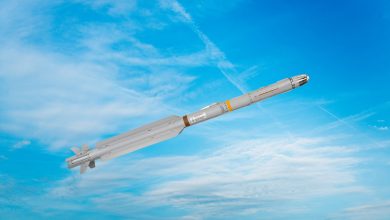US Approves Sale to Germany for 600 PAC-3 MSE Surface-to-Air Defense Missiles

U.S. State Department announced its approval of a potential Foreign Military Sale to Germany, involving the sale of PATRIOT Advanced Capability-3 Missile Segment Enhancement (PAC-3 MSE) missiles and related support equipment. The sale, valued at an estimated $5 billion, marks a significant enhancement to Germany’s defense capabilities and its ability to address evolving security challenges.
Germany has requested the purchase of up to 600 PAC-3 MSE missiles, including 10 missiles designated for testing purposes before full-scale production and deployment. The deal also includes an array of essential support elements such as tools, test equipment, training apparatus, technical documentation, spare parts, and logistics support, all crucial for the integration and operation of the missile system.
The PAC-3 MSE, the most advanced iteration of the Patriot system, is designed to intercept and neutralize a wide range of threats with greater precision and over longer distances than its predecessors. With enhanced range and altitude capabilities, as well as improved guidance systems, the PAC-3 MSE offers a higher probability of successfully intercepting and destroying incoming threats, including ballistic missiles.
The sale will not only enhance Germany’s defense posture but also improve its interoperability with U.S. and NATO forces, thereby contributing to the overall security framework in Europe. The prime contractor for the sale will be Lockheed Martin, and any offsets related to the agreement will be determined through negotiations between Germany and the contractor. Importantly, the implementation of this sale will not require additional U.S. government or contractor personnel to be stationed in Germany.
This strategic acquisition aligns with Germany’s goal of strengthening its national and territorial defense, ensuring it remains a formidable force within the NATO alliance, and capable of addressing the security challenges of the future.
As of the current information available, the German armed forces, the Bundeswehr, operate 12 Patriot batteries, which serve as a crucial component of Germany’s air defense system. These batteries are deployed to protect against a wide variety of aerial threats, including ballistic missiles, cruise missiles, aircraft, and unmanned aerial vehicles (UAVs).
Over the years, the Patriot system in Germany has been continuously upgraded, with the Patriot PAC-3 being the most advanced version currently in use. The Patriot PAC-3 Missile Segment Enhancement (MSE) represents a significant improvement over previous versions like the PAC-2 and the earlier PAC-3. This latest iteration is specifically designed to counter a broader range of modern threats, such as short- and medium-range ballistic missiles, which it can intercept during their terminal phase of flight. Additionally, the PAC-3 MSE is highly effective against cruise missiles, which are typically low-flying and challenging to detect and intercept due to their speed and maneuverability. The system also retains the capability to target and destroy both fixed-wing and rotary-wing aircraft, as well as neutralize unmanned aerial vehicles (UAVs), which are increasingly used in modern conflicts.
The Patriot PAC-3 MSE offers enhanced combat capabilities, including the ability to intercept targets at altitudes of up to approximately 35 kilometers (about 114,800 feet). This high-altitude interception capability is particularly crucial for defending against ballistic missile threats. Moreover, the PAC-3 MSE is equipped with a dual-pulse solid rocket motor, which significantly extends its range, allowing it to engage threats at much greater distances compared to earlier versions of the system.
These advancements make the PAC-3 MSE far more effective in dealing with modern, highly maneuverable threats, ensuring that Germany’s air defense remains robust and capable in the face of evolving security challenges.





